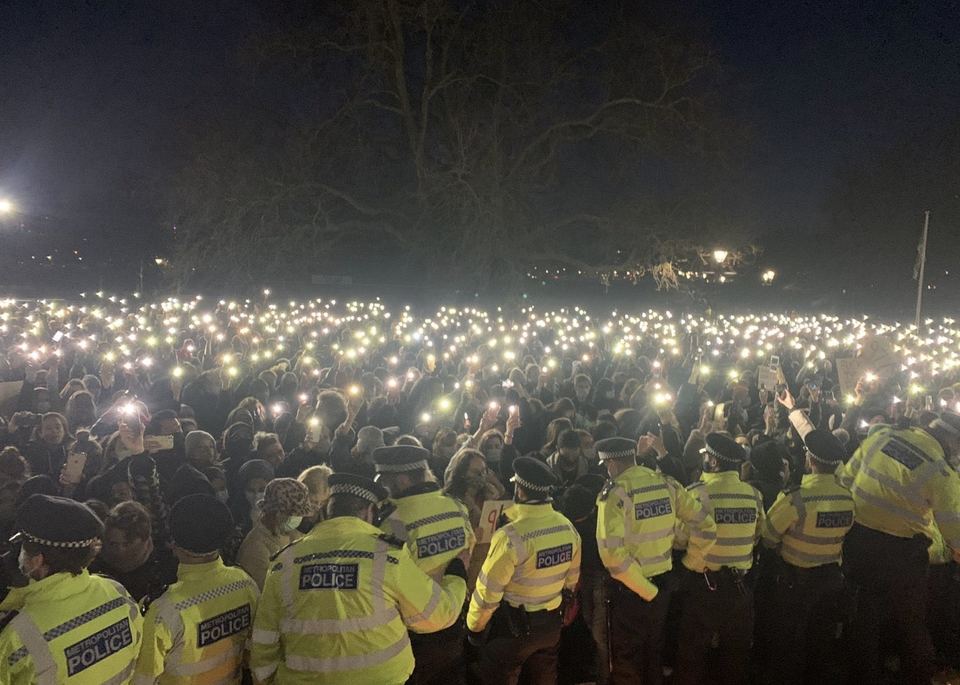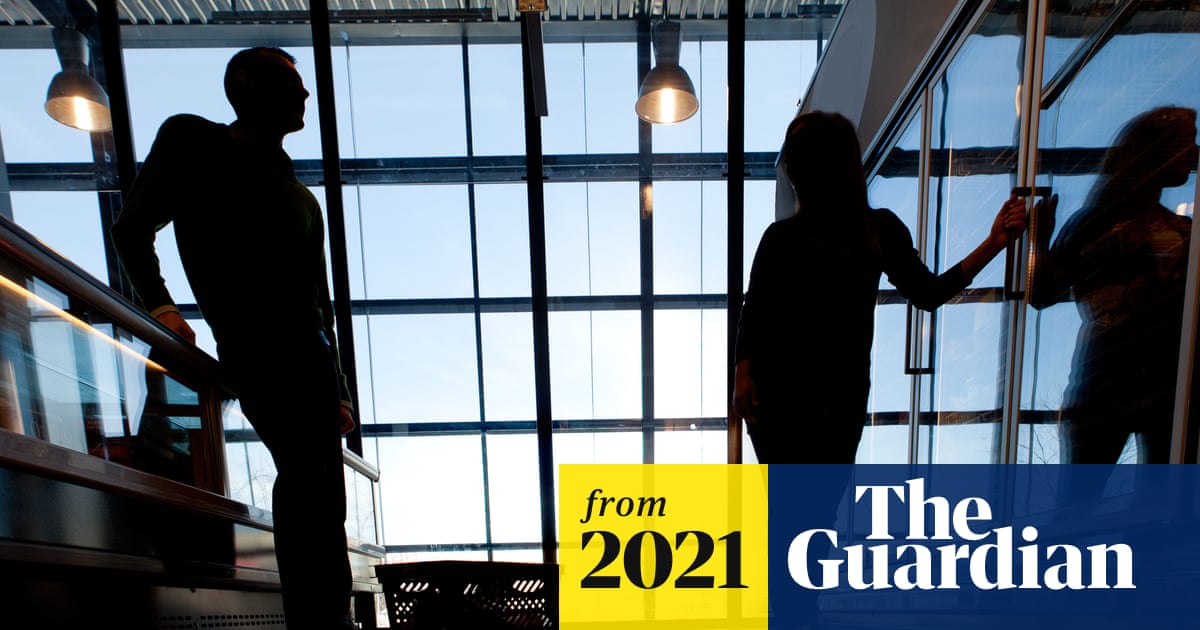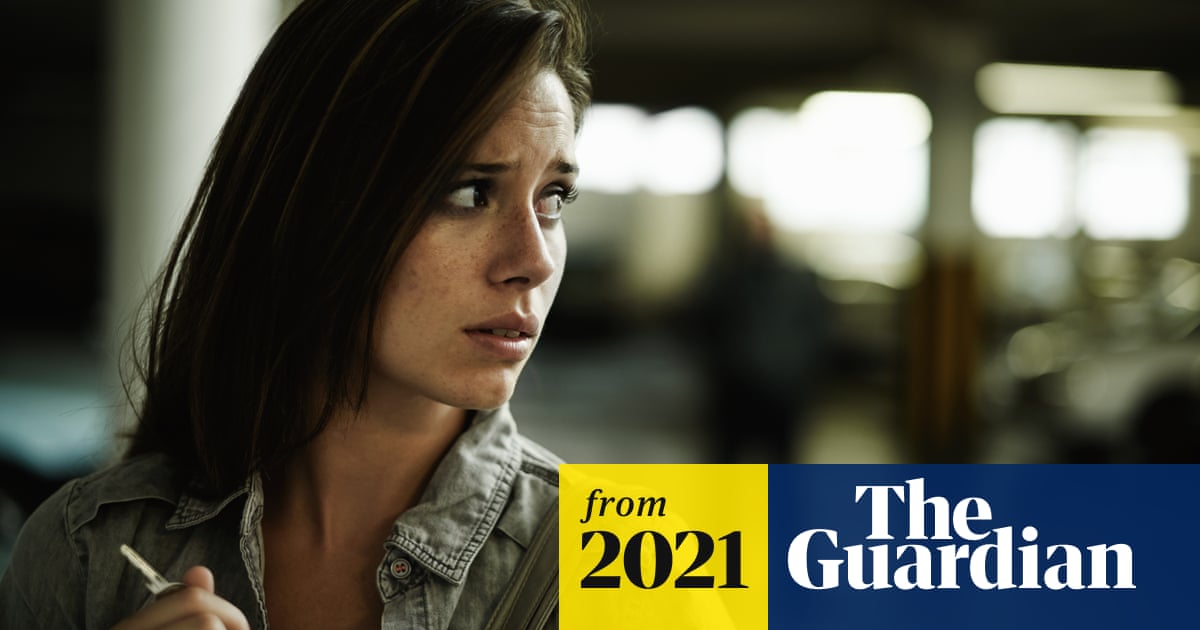Ending harassment and violence against all women, everywhere

By Jamie O’Dell*
Content note: Sexual Violence
Sarah Everard was last seen walking home from Clapham Common in south London on 3rd March, after meeting a friend. On March 12th police confirmed that they had found her body in Kent woodland.

The circumstances surrounding Sarah’s disappearance have been harrowing. Taught from a young age to fear the man in the dark, this is every woman’s worst nightmare; the loss of another woman’s life at the hands of a Metropolitan police officer is resonant and painful. It is a case that sits at the extreme end of a spectrum of misogynistic harm inflicted on women.
It is a familiar plotline in fiction – the assault and murder of women is omnipresent in television and film, often sensationalised, often using violence against women as a cursory plot device.
But for women across the UK, the risk of harassment and violence is an exhausting, habitual lived reality. From too early an age women have been forced to normalise and internalise the risk assessments they make whenever they enter public space.
The outpouring of grief for Sarah’s murder and rage at her loss reached profound levels in the past week, as thousands of women took to social media to share their experiences of sexual harassment, violence and abuse at the hands of men.
These testimonies have provided powerful evidence that women can apply every preventative strategy and still be the target of violence. A United Nations study released this week found that 97% of 18-24 year olds in the UK have been sexually harassed. This is not solely by strangers on the street either. Often, this abuse is close to home, occurring in broad daylight or at the hands of men they know such as friends or partners.

A social issue, not an individual one
This is an issue for all women, everywhere, including Stroud. Although this type of violence may be viewed as more of an urban issue, women and girls across our rural district face harassment, abuse and violence every day at the same level that women and girls do in urban areas.
Of course, although rare, there have been attempted kidnaps – in Chalford last year for instance – and it was reported last year that there had been 200 sexual offences in Stroud between March 2019-2020. Given the staggering level of sexual offences that go unreported, it is hard to imagine what the true number was.

Alongside personal behavioural changes, we must also address the structural dimensions which contribute to the reproduction and facilitation of gendered violence, and the prevention of this in particular is where men need to step up and act.
This involves engaging with and building community level organisations which facilitate men in dismantling cultural and behavioural vectors of gendered violence. However, access to public services are often more scarce in rural communities.
Doors are being slammed on survivors of violence. Refuges are being shut down, legal aid has been cut, social housing is scarce and the benefits system is being destroyed. The government is building prisons not refuges, opening immigration detention centres not Rape Crisis centres, and arming the police, not funding mental health support. Vital domestic violence services are being de-specialised by local councils who are selling off contracts to the lowest bidder. – Sisters Uncut

What can we in the Stroud area and beyond do?
In the reaction to Sarah’s disappearance, men themselves have largely been absent in the conversation. But this conversation should not be about what women can do to avoid harm, but what men can do to end it and it should be characterised by men, rather than just women, being actively and ardently involved while bearing the emotional load of doing the work.
There is more than enough information and testimony out there to enable men to teach themselves and other men about things such as patriarchy, toxic masculinity and male violence, and their own role in and culpability for this.
Women already do all they can to reduce their vulnerability and avoid being in harm’s way, but they will never be free from the fear and threat of assault without systemic changes to our society and our collective individual behaviours.
What changes does this involve?
Firstly there are the immediate behaviour changes. Not walking immediately behind someone, running close to them, keeping your face visible, calling a friend while walking so you’re audibly less of a threat. These are the basic things men can do to reduce the daily burden and make public spaces more accessible and less threatening to women.

Secondly, preventing sexual harassment is every mans responsibility. Bystander intervention is a key part of this, and there are a range of ways that a bystander can be involved before, during or after a situation. This also means standing in solidarity with women if and when they speak out. There’s a reason the phrase ‘your silence is violence’ exists.

Thirdly, as a society we need a cultural shift. Sexual assault and harassment is fundamentally a symptom of a deeper problem in society characterised by enduring patriarchal structures and misogynistic and attitudes towards women.
That means calling out your friends, neighbours, relatives when they are offensive to, or threaten women, online as well as in person, and educating men and boys about women’s daily reality and their role in this, whether they recognise it or not.
Throughout all of this it is also important men remember that they don’t deserve praise or applause simply for standing up for what’s right. The notion that not directly committing or perpetuating harmful actions as the baseline of a ‘good guy’ enables ‘good guys’ to falsely separate themselves from gender based violence and thus avoid being part of the solution, instead passively remaining as part of the problem.
It also means seeing gender based violence intersectionally, which means understanding and recognising the specific experiences that different women will go through, based upon factors such as their class, race or their gender identity. This is while recognising and challenging the role of institutions, such as the police and the state more widely, in committing and perpetuating violence against women.

The lack of surprise so many women in and around Stroud felt upon hearing the news of Sarah Everard’s disappearance demonstrates just how far we have to go as a society. But, by modifying our behaviours and through men talking to, educating, and challenging each other, we as a society can start to make progress towards tackling violence against women, everywhere.
One article is not enough to cover the issues and topics raised here at Amplify Stroud, as part of our core aim of platforming the voices of under-represented communities of the Stroud region and to challenge local injustice and inequality, we hope to explore these issues and their local context in more detail. If you would like to produce content one this, or any other topic, that we can platform and promote, we would love to hear from you at [email protected]
*This was not the sole work of one author, my thanks goes to all the women and men who contributed and reviewed this article.






Member discussion